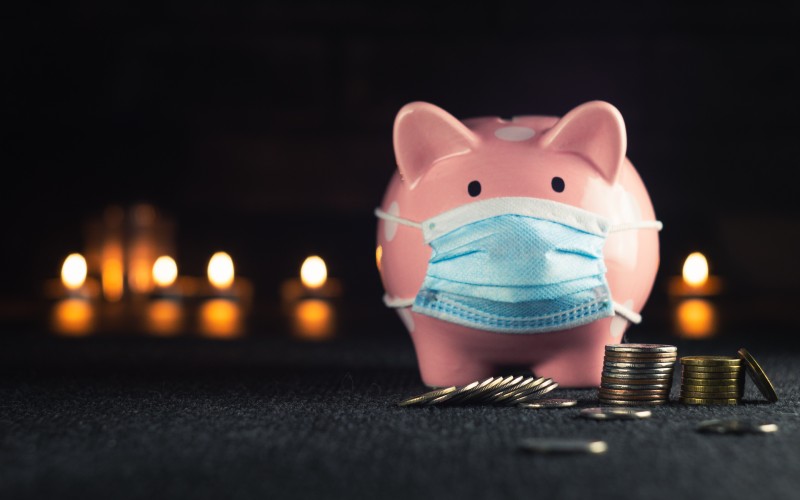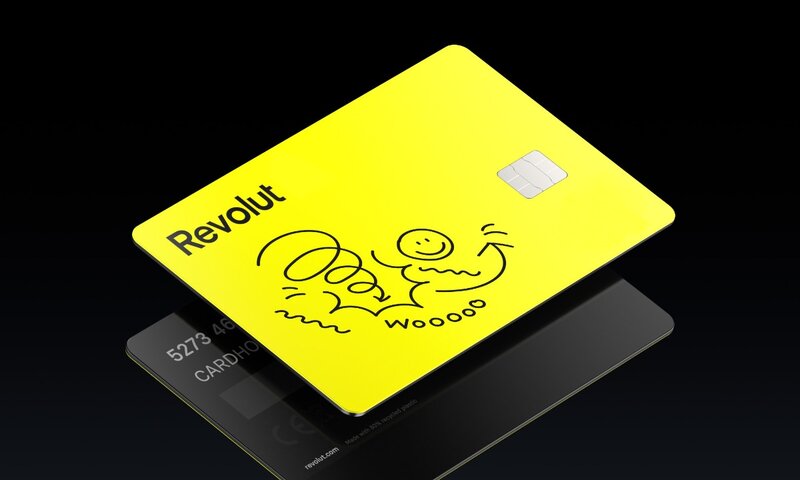Your credit history and credit score is a representation of your trustworthiness as a borrower, so it plays a big role in determining whether you’ll be approved for a loan. Lenders look at your credit history to determine whether you could afford to meet potential repayments, how much they’re willing to lend to you, what interest rate to charge you, and whether you should be approved or rejected for a loan.
If you have bad credit, you may find it harder to be approved for a personal loan than someone with good credit, or you may have to pay a higher interest rate or higher fees. This is why it’s important to compare all your options and consider ways you can improve your credit and manage your existing debts before taking on more debt.
How can I find out if I have bad credit?
Even if you’ve never owned a credit card or taken out a loan before, you probably still have a credit rating based on your utility bills (internet, electricity etc.) or mobile phone payments. Behaviours like not paying these bills on time, racking up huge amounts of debt, declaring bankruptcy, or being rejected for multiple credit applications can all negatively impact your credit score.
You can check your credit score for free through any of the major credit reporting bodies in Australia, like illion, Equifax or Experian. Personal finance apps nowadays also let you check your credit score for free, like WeMoney and Tippla.
Once you’ve checked your credit score, you could consider ‘bad’ to be anything in the ‘average’ or ‘below average range’:
|
|
Equifax |
Experian |
Credit Simple (ilion) |
|
Excellent |
833-1200 |
800-1,000 |
800-1000 |
|
Very good/Great |
726-832 |
700-799 |
700-799 |
|
Good |
622-725 |
625-699 |
500-699 |
|
Average/Fair |
510-621 |
550-624 |
300-499 |
|
Below average/weak |
0-509 |
0-549 |
1-299 |
Source: Equifax, Experian and Credit Simple.
Related: How does a personal loan impact your credit score?
Personal loan options for people with bad credit
Having bad credit doesn’t mean you can’t apply for a personal loan - here are some options you can consider.
Secured personal loans
A secured personal loan is a loan that is secured against something you own, like a car, motorbike, boat, your home, or anything else of similar value to the loan you’re taking out.
The lender uses this asset as collateral, which acts as protection for them in case you’re unable to repay the loan. If that were to happen, the lender would seize the asset and sell it to recoup the money you owe.
People with bad credit may have more luck getting approved for a secured personal loan because it requires them to put up an asset as security, which reduces some of the risk for the lender.
In the market for a personal loan? The table below features personal loans with some of the lowest interest rates on the market.
Guarantor personal loans
A guarantor personal loan is a loan that is guaranteed by a family member or friend, who has agreed to be responsible for the loan repayments if you are unable to make them. The guarantor essentially acts as security for the loan, making this type of loan less risky.
There are two types of guarantor personal loans: secured and unsecured. A secured guarantor loan requires the guarantor to put up an asset as security for the loan, like their car, boat, motorbike, etc. If you default on the loan repayments and your guarantor is also unable to step in and make them for you, the lender could then seize the guarantor’s asset to pay off the debt.
An unsecured guarantor personal loan doesn’t require the guarantor to put up an asset as security for the loan, but the guarantor is still responsible for making the loan repayments if you are unable to.
Before taking out a guarantor loan, it’s important to keep in mind the responsibility the guarantor is taking on, and the potential impact this could have on your relationship if you default on the loan.
No interest loans
The No Interest Loan Scheme (NILS) is an initiative of Good Shepherd Microfinance and the Federal Government. It allows people to access up to $1,500 for essential goods and services to be repaid over 12 to 18 months with no interest and no fees.
To be eligible you just need to:
-
Have Health Care or Pension card
-
Or earn less than $45,000 for singles (or $60,000 for couples or people with dependents)
-
Have lived at your current or previous address for at least three months
-
And show evidence you have the capacity to repay the loan
No credit check is required when applying for a no interest loan, which makes them a good option for people with bad credit.
Borrow from family or friends
If you’ve exhausted all your other options, you could ask to borrow money from your family or friends. However, you should be mindful of the risks this option could pose to your relationship if you can’t repay the loan, or if the person you borrowed money from decides they now need the money back straight away for whatever reason.
The National Debt Helpline recommends agreeing with them upfront on exactly how and when the money you have borrowed will be repaid to avoid getting into an argument down the track. Don’t make promises to repay amounts you can’t afford, and set up a repayment schedule to keep you accountable.
Remember that just because there’s no written contract, borrowing money is still considered to be a verbal agreement and has the same legal standing as other types of debt, so your family member or friend could still take you to court if you don’t pay them back.
Is it possible to get a bad credit personal loan with guaranteed approval?
In Australia, it’s not actually possible to get guaranteed approval for a personal loan if you have bad credit. Lenders have to comply with responsible lending obligations, which means they’re required to conduct an assessment on every applicant and make inquiries about your income, living expenses, any outstanding debts, why you want to borrow the money and whether you can afford to pay it back.
Because lenders legally have to comply with these responsible lending obligations, there is no such thing as ‘guaranteed approval’. If a lender is claiming they can offer guaranteed approval, it’s likely a scam.
What to consider before applying for a personal loan if you have bad credit
Don’t apply for too many loans at once
Every loan application you make is recorded on your credit report as a ‘hard inquiry’. Too many hard inquiries in a short space of time is a massive red flag to a lender and could further hurt your credit score. If you’ve applied for a personal loan, wait until you hear back from the lender to see if you’ve been approved or rejected.
If you’ve been rejected, you should avoid applying for more personal loans for a little while. Find out why your application was rejected first and work on resolving those issues.
Check your credit score
If you’re not sure what your credit score is, the easiest way to find out is by checking through any of the major credit reporting bodies in Australia, like illion, Equifax or Experian. Once you know what your credit score is, you’ll have a better idea of what your chances are of being approved for a personal loan.
Read more: How to check your credit score
Use a personal loan calculator
Before applying for a personal loan, it’s a good idea to use a personal loan calculator so you can plug in all the details of the loan you want to apply for to calculate whether or not you could afford the repayments. Doing this may help you avoid applying for a personal loan you can’t afford, which could improve your chances of being approved.
Be careful about payday loans
Payday loans generally get a pretty bad rap, and often for good reason. They’re commonly referred to as ‘predatory lenders’ because they target desperate, financially vulnerable people by promising to wire the money into your bank account in as little as an hour.
Payday loans allow you to borrow smaller amounts of money, generally up to $5,000, which has to be repaid within a period of 16 days to a year. Payday lenders usually have very few eligibility requirements and don’t technically charge interest, which makes them sound like a tempting option for people with bad credit.
However, payday lenders make up for that by charging very high fees, which quickly add up and can lead some people to take out additional payday loans because they keep falling behind in their debt repayments. In fact, data from Digital Finance Analytics (DFA) found that around 15% of payday borrowers fall into a debt spiral over a five-year period.
See also: Personal loans vs payday loans
How to improve your credit
You can’t immediately improve your credit score but there are steps you can take to boost your credit score over time, such as:
-
Fully paying bill and rent repayments on time, consistently
-
Paying credit card, mortgage and other loan repayments on time, consistently
-
Lowering your credit card limit
-
Not applying for too many loans or credit cards
-
Not maxing out credit cards
-
Being older - age can have an impact on your credit score as older people tend to be more responsible, at least according to banks and lenders
If you think there has been an error made to your credit report (such as a debt incorrectly listed twice, or being marked as missing a repayment you did make), you can ask the reporting agency, your credit provider, or the Office of the Australian Information Commissioner to revise this within 12 months. This can help boost your credit score, but only if a genuine mistake has been made.
Steer clear of companies that claim to ‘fix’ or ‘repair’ your credit score. All these companies can do is fix any incorrect information that may be on your credit report which you can easily do for free yourself. These companies cannot magically wipe away negative information from your report if it’s correct.
Get help to manage your debt
Before taking on any more debt, it would be wise to speak with a finance professional for advice and support. You can reach out to the National Debt Helpline (1800 007 007) for free financial counselling. The National Debt Helpline can provide free information about credit and other debt-related matters, how to work out a realistic payment plan for your debts, what your rights are, and how to access other specialist support services such as gambling, family support, personal counselling, free legal aid and emergency relief.
If you’re facing legal action as a result of being in debt, you may be able to obtain free legal advice by contacting the Community Legal Centre (02 9264 9595) or by finding Legal Aid agencies in your state or territory.
You can also contact your bank or lender’s financial hardship team.
If you’re struggling and need further help, don’t forget you can reach out to Lifeline at any time (13 11 14).
Savings.com.au’s two cents
If you have bad credit and need a personal loan, there are options available. Just be mindful that it may not be wise to dig yourself further into debt, so seek out alternative options if you can. You may also want to consider speaking with a free financial counsellor to get individual advice about how to manage your situation.
Photo by Konstantin Evdokimov on Unsplash






 Harrison Astbury
Harrison Astbury
 Harry O'Sullivan
Harry O'Sullivan